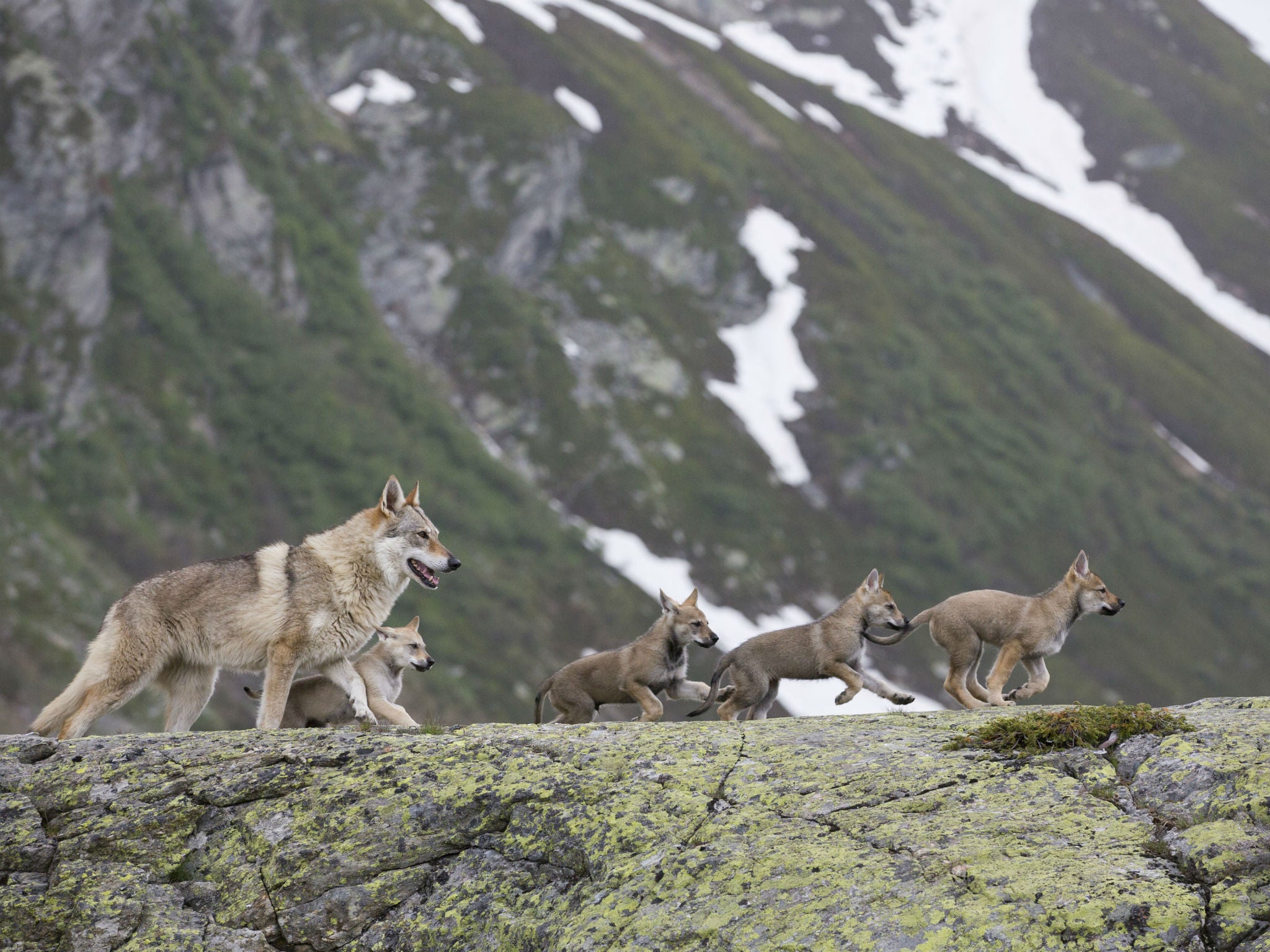The Snow Wolf: A Winter’s Tale, review: This dramatised documentary is pointlessly deceptive
Although it looks and sounds like a nature documentary, this fictionalised epic uses animatronics and habituated animals. It's a strange approach, argues Clarisse Loughrey

Your support helps us to tell the story
From reproductive rights to climate change to Big Tech, The Independent is on the ground when the story is developing. Whether it's investigating the financials of Elon Musk's pro-Trump PAC or producing our latest documentary, 'The A Word', which shines a light on the American women fighting for reproductive rights, we know how important it is to parse out the facts from the messaging.
At such a critical moment in US history, we need reporters on the ground. Your donation allows us to keep sending journalists to speak to both sides of the story.
The Independent is trusted by Americans across the entire political spectrum. And unlike many other quality news outlets, we choose not to lock Americans out of our reporting and analysis with paywalls. We believe quality journalism should be available to everyone, paid for by those who can afford it.
Your support makes all the difference.A fearsome leader, mother, and survivor is at the centre of BBC2’s latest creature-based epic. Described by the broadcaster as a “dramatised natural history film”, The Snow Wolf: A Winter’s Tale follows an alpha female wolf in the Italian Alps who, due to tragic circumstances, is forced to flee her pack.
Emphasis must be placed on the word “dramatised” – which is carefully uttered by the film’s narrator, Emilia Fox, although the term is bound to mean relatively little to its audience. In fact, The Snow Wolf not only fictionalises its story, but uses habituated animals and animatronics to achieve its effects. It makes for a programme that feels rather pointlessly deceptive.
The Snow Wolf has all the trimmings of a legitimate nature documentary. Fox’s voice is solemn and respectful, taking great pains to ensure we are aware of how “extraordinary” and “difficult” and “dangerous” this wolf’s journey is, while also littering the story with plenty of factual titbits. We’re educated on the structures of wolf society, deer survival skills, and the origins of the Dolomites – a mountain range in northeastern Italy that is in fact a former coral reef, forced out of the sea millions of years ago.
What the programme’s “dramatised” approach seems to offer, ultimately, is the opportunity for its filmmakers to give in to their most basic stylistic urges: a battle between a wolf and a bear ends with a (very obviously fake) paw swiping down at the camera, while each meeting between creatures must result in a The Good, The Bad and The Ugly-style standoff, cutting swiftly between steely gazes. During contemplative close-ups, Fox’s narration appears to translate their thoughts for us. A little slow motion is added into the mix whenever things don’t quite feel epic enough. Although The Snow Wolf has its atmospheric moments, including a deer chase that’s shot with the eerie minimalism of a Scandi noir, the end result is far too overcooked to feel effective.
The Snow Wolf represents the most extreme result of the desire to create empathy with the nature documentary’s subjects. The alpha female’s litter of six cubs, for example, aren’t even allowed to simply be adorable in their natural state – they must perform all the yips and curious head tilts of your standard Instagram-famous pup. The film also throws in an actual pack of dogs, owned by a sheepherder named Mathias, who are all given full, named introductions and plenty of loving close-ups.
By the time She Wolf’s journey ends and Fox’s narration has recapped, in awe, everything she has achieved, there’s only one question to be asked: what’s the point? If you’ve reached this level of illusion and trickery, why not just go the full Disney route and have your animals talk and do musical numbers?
Join our commenting forum
Join thought-provoking conversations, follow other Independent readers and see their replies
Comments